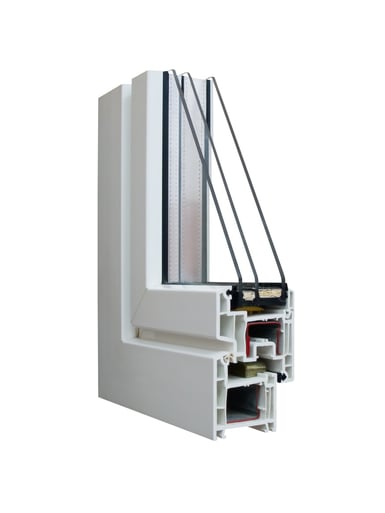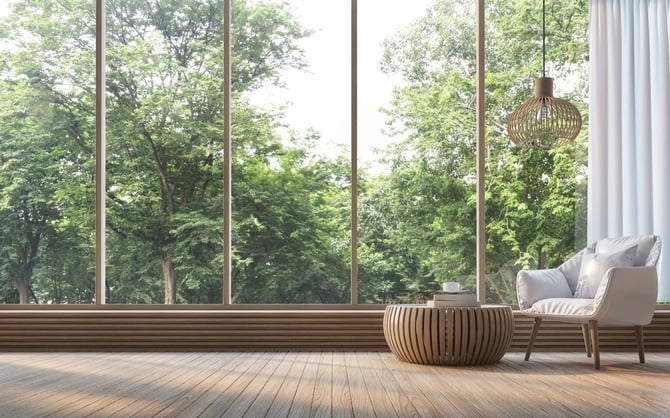Many property owners assume that using triple glazing for sound insulation is the best way to get optimal acoustic benefits.
After all, the thicker your insulated glass unit, the more insulation.
When you really look at the pros and cons of triple glazing, however, that third pane of glass may actually end up creating more problems than you had anticipated, let alone costing more money.

When it comes to investing in soundproofing, you want to use the best process that will offer you the most all-around value.
The best window for one climate, for example, is not necessarily going to be the most ideal choice for another environment simply because varying climates have varying thermal insulation needs.
Also, depending on how old your home or building is, you may end up ruining the look of your property – and diminishing its value – simply by spending too much for triple glazed windows. By comparing the features of triple and double glazing, you’ll have the facts you need to make the right decision for your home or commercial space – and your budget.
How Double Glazing Reduces Noise

With double glazing, a double insulated glass unit replaces your single pane of glass in order to stop a lot of the sound waves and vibrations from outside that normally enter your home.
After having a double glazed unit installed, many people comment on how much of a difference it does make, noting that they can finally hear the purity of their own music playing, the sound of food cooking, children laughing, without the invasion of traffic, noisy neighbours, trucks, planes, lawnmowers and just the constant drum of modern life.
With the insulated glass unit, sound waves now have to travel through two panes of glass as well as a sealed air space. This dampens the sound and reduces a lot of the audible noise pollution. By customising your windows with varying thicknesses and types of glass, you can get the ideal amount of noise reduction for each room, enjoying optimised benefits at an optimised price.
For example, with thicker glass, using two panes of glass of different thicknesses, and opting for one pane of laminated or acoustic grade glass, you can enhance the sound insulating benefits enough to dramatically reduce noise pollution. Even increasing the air space between the two panes of glass can lead to greater soundproofing.
Won’t Triple Insulated Windows Reduce More Noise?
While a triple pane window will muffle noise, you aren’t likely to get a big enough difference with that extra layer of glass and air space in a triple insulated glass unit.
Double glazed windows, especially when they are designed to address the specific decibel and frequency you are dealing with, are going to give you remarkable quiet.
Once you get beyond this level of peace and calm in your home, it’s more a matter of the law of diminishing returns setting in. You’ll have to invest more – and even sacrifice other features – in order to get a small incremental acoustic difference. In fact, you probably won’t be able to hear the improvement.

If you want better sound insulation, you’re better off enhancing your double glazed units more. Simply choosing a thicker glass or using acoustic grade glass can further reduce noise pollution, making triple glazing unnecessary.
Also, experienced window professionals should ensure your windows are properly sealed. If you have a triple glazed unit installed yet have small openings for sound waves to travel through, you’re still going to have noise issues even after making a big investment for triple glazed windows! The Thermawood retrofit double glazing process includes using acoustic seals to create a more complete soundproofing impact.
The Pros and Cons of Triple Glazing
Where triple glazed windows aren’t necessary for noise reduction, they do have other benefits. With three panes of glass, you’ll get the maximum thermal insulating benefits. This makes triple glazing useful in extremely cold climates where you want as little heat as possible to escape.
Even if you wanted the ultra insulation benefits, there are drawbacks you should be aware of. If you live where there is a lot of sun, you won’t get to enjoy the heat gain from the sunshine. That’s just how intense the insulating impact is. This means, for property owners in sunny Australia, triple glazing would stop that lovely natural warmth on chilly, but sun-filled days.
Another major issue with double glazing is that such a large insulated glass unit demands a thick, strong window frame to support it. Having to install a thick frame increases the cost and also makes it difficult, if not impossible, to use a retrofit double glazing system instead of having to replace with new double glazed windows.
You’ll lose the character-retaining and money saving benefits that come with retrofit double glazed windows, and you’ll have to say goodbye to those lovely heritage timber windows.
Getting the Value and Quiet You Deserve

When it comes to double or triple glazing for sound insulation, you’re going to get a better overall experience with double glazed windows:
- They will cost significantly less, especially if you use retrofit double glazed windows instead of new double glazed windows.
- You’ll still enjoy thermal insulation benefits without sacrificing the desirable solar heat gain on chilly days.
- You won’t need a new, thick frame to hold the triple insulated glass units in place, which means you can retain your existing timber frame, as well as the original charm of your windows.
Unless you live in extreme cold, triple glazing isn’t a practical option and it won’t improve the noise reduction benefits enough to justify the higher price and aesthetic sacrifice.


![Double or Triple Glazing for Sound Insulation [Comparison]](https://www.thermawood.co.nz/wp-content/uploads/2021/08/triple-glazing-sound-insulation-1.png)